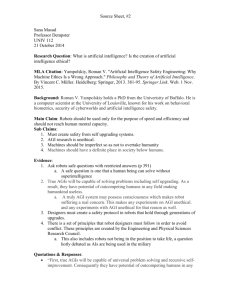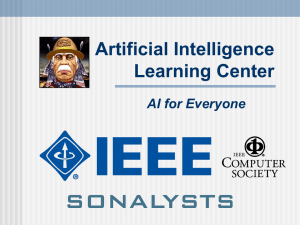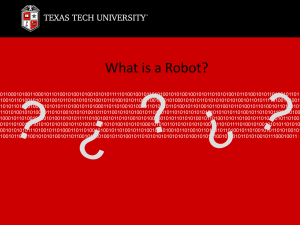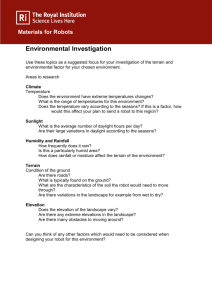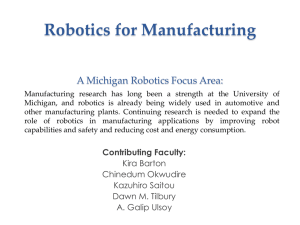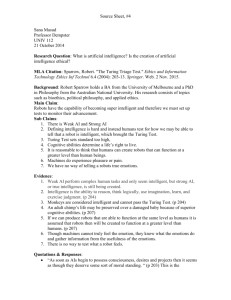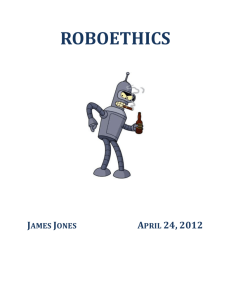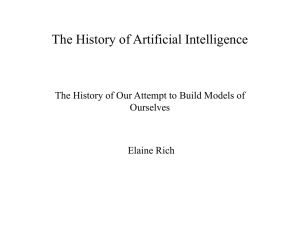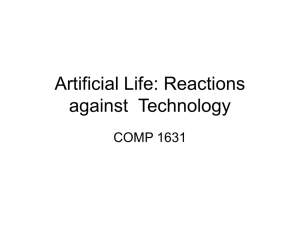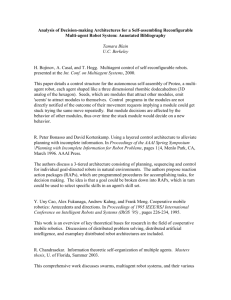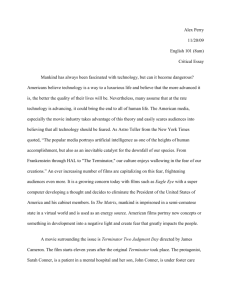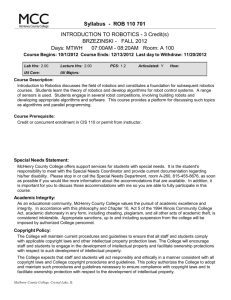Source Sheet #1
advertisement
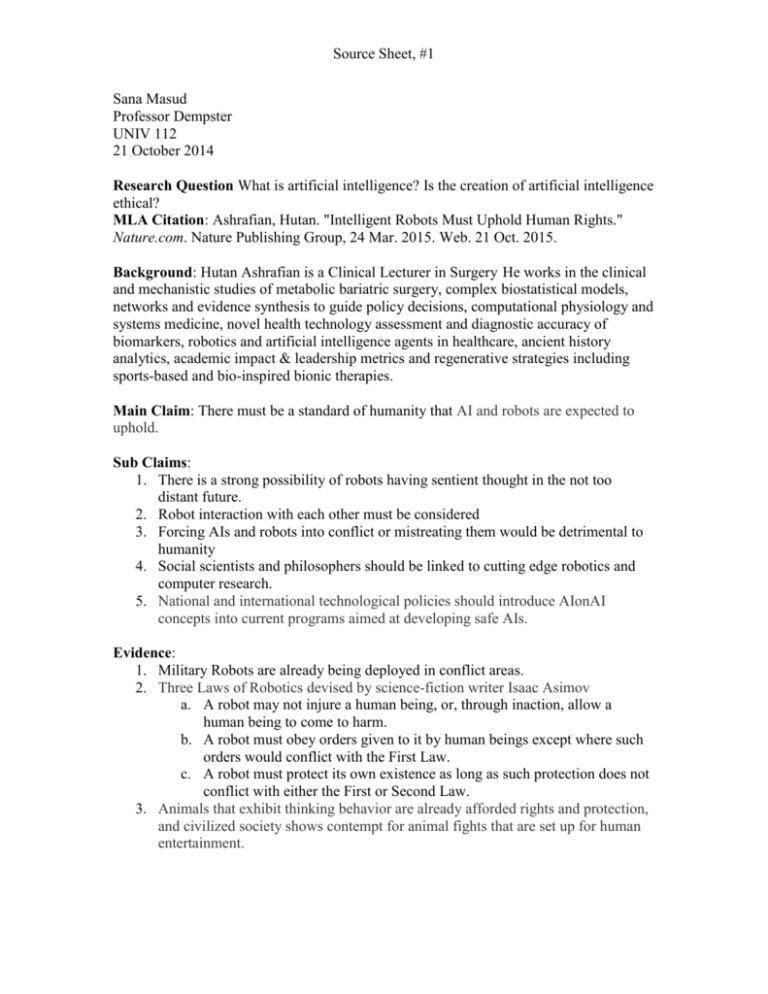
Source Sheet, #1 Sana Masud Professor Dempster UNIV 112 21 October 2014 Research Question What is artificial intelligence? Is the creation of artificial intelligence ethical? MLA Citation: Ashrafian, Hutan. "Intelligent Robots Must Uphold Human Rights." Nature.com. Nature Publishing Group, 24 Mar. 2015. Web. 21 Oct. 2015. Background: Hutan Ashrafian is a Clinical Lecturer in Surgery He works in the clinical and mechanistic studies of metabolic bariatric surgery, complex biostatistical models, networks and evidence synthesis to guide policy decisions, computational physiology and systems medicine, novel health technology assessment and diagnostic accuracy of biomarkers, robotics and artificial intelligence agents in healthcare, ancient history analytics, academic impact & leadership metrics and regenerative strategies including sports-based and bio-inspired bionic therapies. Main Claim: There must be a standard of humanity that AI and robots are expected to uphold. Sub Claims: 1. There is a strong possibility of robots having sentient thought in the not too distant future. 2. Robot interaction with each other must be considered 3. Forcing AIs and robots into conflict or mistreating them would be detrimental to humanity 4. Social scientists and philosophers should be linked to cutting edge robotics and computer research. 5. National and international technological policies should introduce AIonAI concepts into current programs aimed at developing safe AIs. Evidence: 1. Military Robots are already being deployed in conflict areas. 2. Three Laws of Robotics devised by science-fiction writer Isaac Asimov a. A robot may not injure a human being, or, through inaction, allow a human being to come to harm. b. A robot must obey orders given to it by human beings except where such orders would conflict with the First Law. c. A robot must protect its own existence as long as such protection does not conflict with either the First or Second Law. 3. Animals that exhibit thinking behavior are already afforded rights and protection, and civilized society shows contempt for animal fights that are set up for human entertainment. Source Sheet, #1 4. There is a set of principles that robot designers must follow in order to avoid conflict. These principles are created by the Engineering and Physical Sciences Research Council. 5. Engineering and Physical Science Research Council and the Arts and Humanities Research Council have already introduced a set of principles that designers must follow in order to create a “safe” robot. Quotations & Responses: “Engineering and Physical Sciences Research Council and the Arts and Humanities Research Council have already introduced a set of principles for robot designers. These reinforce the position that robots are manufactured products, so that “humans, not robots, are responsible agents”. (Nature, 519)This means the gravity of creating artificial intelligence is being taken into consideration in the design stage. “Do not underestimate the likelihood of artificial thinking machines. Humankind is arriving at the horizon of the birth of a new intelligent race.” (Nature, 519) This quote speaks to the desperation Hutan has for this issue to be taken seriously. “It would be unreasonable for a robot to uphold human rights and yet ignore the rights of another sentient thinking machine.” (Nature, 519) This quote speaks to the complexity of AI. It also comes across as a succinct point that addresses the fact that if robots were given intelligence, they become humans in a way and are valid creatures that deserve their own rights and rules. This quote also begins to speak to the importance that robotic conflicts are avoided. “Animals that exhibit thinking behavior are already afforded rights and protection, and civilized society shows contempt for animal fights that are set up for human entertainment. It follows that sentient machines that are potentially much more intelligent than animals should not be made to fight for entertainment. It follows that sentient machines that are potentially much more intelligent than animals should not be made to fight for entertainment.” (Nature, 519) This proves an indisputable point that animals, who, in theory, function at a lower intelligence level, are given rights, so when artificial intelligence is created, a similar outline of rights should be given. Questions & Conclusions: This source gives me an argument for implementing a system or guidelines for robotic ethics in order to ensure we avoid conflict between AIs. Asharfian argues that this is the most important element to consider when developing AIs as internal conflict among the robots may be more difficult to resolve.
